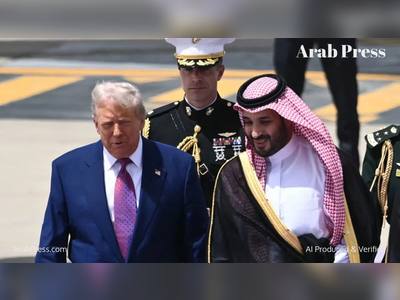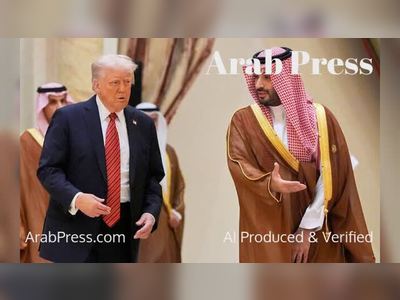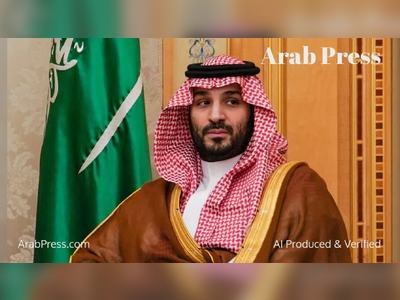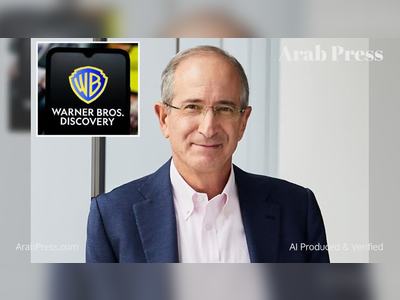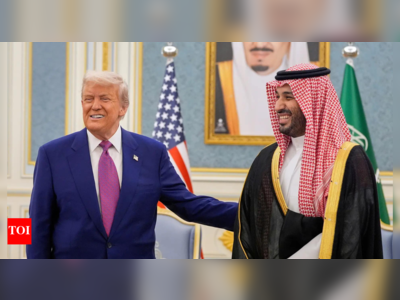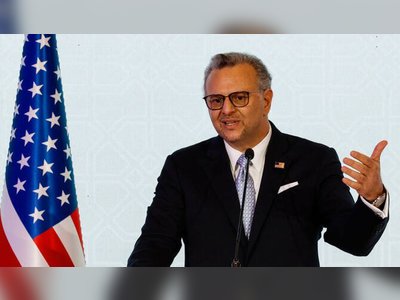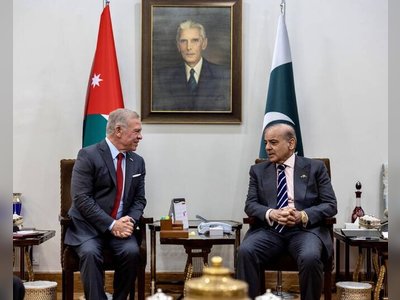What We Know Now: Donald Trump’s Financial Ties to Saudi Arabia
A detailed breakdown of decades-long business dealings culminating in tens of millions in Saudi-linked revenue for Trump and his businesses
Donald Trump has maintained a complex financial relationship with Saudi Arabia stretching back decades, and recent disclosures suggest the ties have grown markedly since his return to the presidency.
While the former president denied having direct financial interests in the Kingdom, available records show multiple deals and significant capital flows linking his business network to Saudi investors.
Early, more modest transactions date to the 1990s and early 2000s—such as the sale of the Plaza Hotel and floors of Trump World Tower to Saudi-related buyers.
More recently, Forbes and other outlets report that from his extended family’s enterprises, at least nine distinct deals with Saudi-linked parties occurred after his first presidential term ended, funneling millions into Trump-branded licensing and private-equity ventures.
The most striking recent estimate places the Trump family’s gain from Saudi-connected transactions in 2024 at roughly fifty million dollars.
The Trump Organization itself has also publicly announced new Saudi-linked luxury developments: for instance, a Saudi developer agreed in late 2024 to launch Trump Tower Jeddah, followed by further expansion announcements in the Kingdom this year.
These developments coincide with a broader surge in U.S.–Saudi commercial engagement under President Trump’s agenda of “America First” investment deals.
In May 2025, Trump announced what was described by the White House as a Saudi commitment of six-hundred billion dollars in U.S. investment, anchored by defence, energy, technology and infrastructure agreements.
While much of this involves corporate and state-level commitments, Trump’s personal and family business ties to Saudi-linked investors stand out within that broader context.
The overlap of Trump’s business network and U.S.–Saudi bilateral diplomacy poses questions about the convergence of financial interests and public office.
According to the analysis, Kushner’s firm, Affinity Partners, also plays a role, having secured Saudi sovereign-wealth-fund backing while participating in deals supported by the Trump orbit.
Legal and ethical experts say that while none of the arrangements automatically breach law, the layered relationships underscore the importance of transparency and conflict-of-interest safeguards when public office and personal business interests align.
For now, the financial picture shows that Trump’s Saudi Arabia engagements are not limited to arms or high-level diplomacy—they are embedded in a network of real-estate, licensing and investment contracts with the Kingdom.
As Crown Prince Mohammed bin Salman visits Washington next week, the business backdrop offers a reminder that behind the diplomatic surface lie longstanding financial ties that continue to shape U.S.–Saudi economic alignment.
While the former president denied having direct financial interests in the Kingdom, available records show multiple deals and significant capital flows linking his business network to Saudi investors.
Early, more modest transactions date to the 1990s and early 2000s—such as the sale of the Plaza Hotel and floors of Trump World Tower to Saudi-related buyers.
More recently, Forbes and other outlets report that from his extended family’s enterprises, at least nine distinct deals with Saudi-linked parties occurred after his first presidential term ended, funneling millions into Trump-branded licensing and private-equity ventures.
The most striking recent estimate places the Trump family’s gain from Saudi-connected transactions in 2024 at roughly fifty million dollars.
The Trump Organization itself has also publicly announced new Saudi-linked luxury developments: for instance, a Saudi developer agreed in late 2024 to launch Trump Tower Jeddah, followed by further expansion announcements in the Kingdom this year.
These developments coincide with a broader surge in U.S.–Saudi commercial engagement under President Trump’s agenda of “America First” investment deals.
In May 2025, Trump announced what was described by the White House as a Saudi commitment of six-hundred billion dollars in U.S. investment, anchored by defence, energy, technology and infrastructure agreements.
While much of this involves corporate and state-level commitments, Trump’s personal and family business ties to Saudi-linked investors stand out within that broader context.
The overlap of Trump’s business network and U.S.–Saudi bilateral diplomacy poses questions about the convergence of financial interests and public office.
According to the analysis, Kushner’s firm, Affinity Partners, also plays a role, having secured Saudi sovereign-wealth-fund backing while participating in deals supported by the Trump orbit.
Legal and ethical experts say that while none of the arrangements automatically breach law, the layered relationships underscore the importance of transparency and conflict-of-interest safeguards when public office and personal business interests align.
For now, the financial picture shows that Trump’s Saudi Arabia engagements are not limited to arms or high-level diplomacy—they are embedded in a network of real-estate, licensing and investment contracts with the Kingdom.
As Crown Prince Mohammed bin Salman visits Washington next week, the business backdrop offers a reminder that behind the diplomatic surface lie longstanding financial ties that continue to shape U.S.–Saudi economic alignment.
